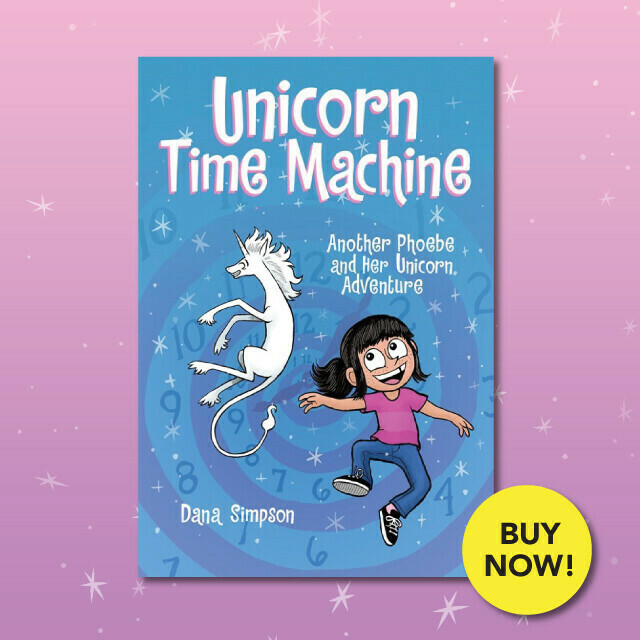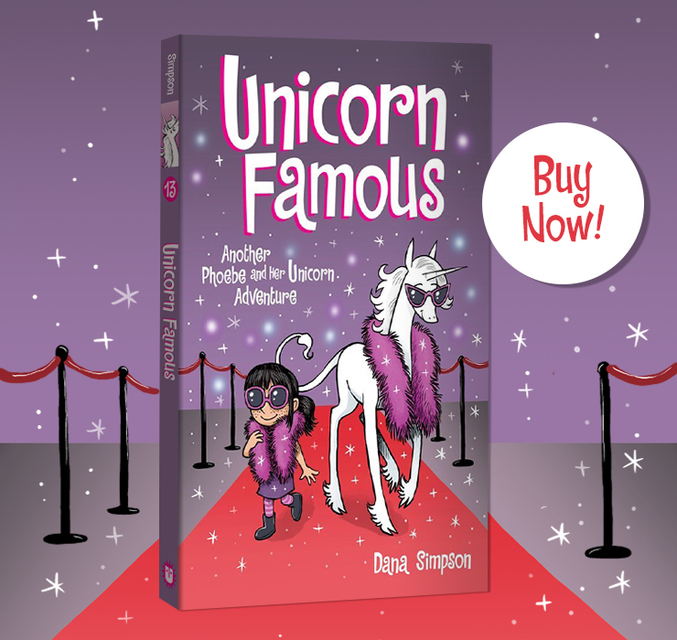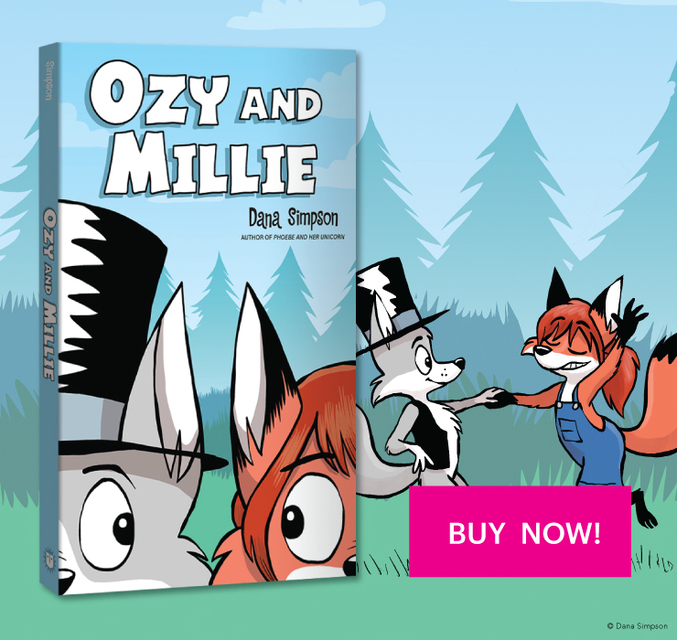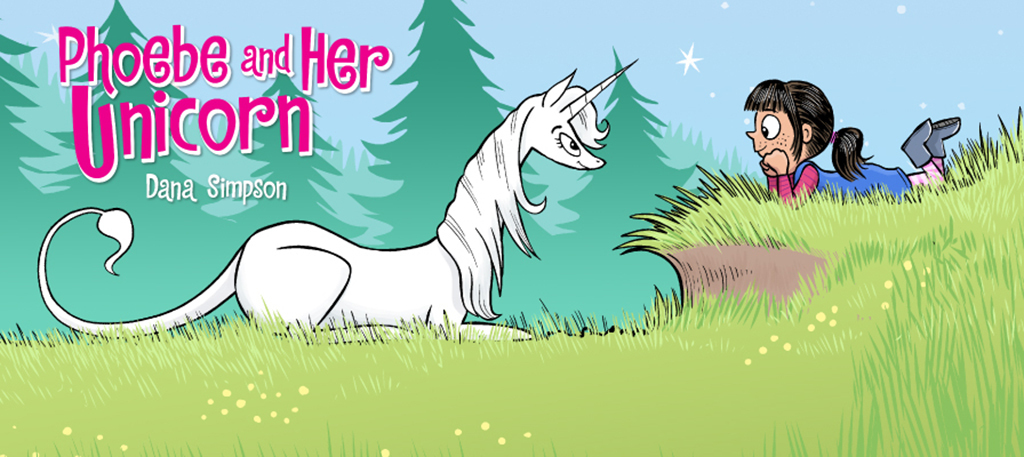Phoebe and Her Unicorn by Dana Simpson for July 22, 2013
Transcript:
Phoebe: If laughing is called "laughter," why is coughing not called "coughter?" Marigold: I do not know. Phoebe: I've been asking everybody I see. So far, the unanimous answer is "to make little girls ask questions." Marigold: So just your parents then. Phoebe: Summer vacation is a hard time to learn anything useful.












Hag5000 over 11 years ago
Her dad could have Googled it…even if there was no answer, it would show Phoebe he tried.
kaykeyser over 11 years ago
Since when does Summer vacation mean having to learn stuff? on the other hand that goes with all the other great questions like "Why is no one ever just whelmed? and why do hot dogs and hot dog buns come in different numbers? and a few others I can’t recall right now.
Desertsinger1972 over 11 years ago
You mean I am not the only one to wonder about weird stuff like that?
R.U. Kidding over 11 years ago
@kaykeyserNo one is ever gruntled, either. And the weather is never clement.
reynard61 over 11 years ago
“One tooth.”
“Two teeth.”
“One telephone booth.”
“Two telephone beeth?” – GED lesson video.
“The problem with defending the purity of the English language is that English is about as pure as a cribhouse whore. We don’t just borrow words; on occasion, English has pursued other languages down alleyways to beat them unconscious and rifle their pockets for new vocabulary.”—James D. Nicoll
http://en.wikiquote.org/wiki/James_Nicoll
Kali39 over 11 years ago
We will never have a global language, because: 1. Polish has no vowels; 2. Hawaiian has no consonants; 3. and English has no sense.
Me3000 over 11 years ago
pronounce mustthen achethen mustacheif you said mistake for the last one your not wrong the language is…lol
Masterius over 11 years ago
English is the result of Norman men-at-arms trying to make dates with Saxon barmaids.
Comic Minister Premium Member over 11 years ago
I think so Phoebe.
Randy B Premium Member over 11 years ago
Consider “laughter” and “daughter”.Both are similar in German (gelachter and Tochter), and are in fact more similar in German pronunciation than in English.(Actually, in old English, both words appear to have used the same hard “-ch” or “-gh” sound, but later diverged.)Note that “laugh” is a word, but “daugh” is not.
Kali39 over 11 years ago
I before E except after CLet’s seeI before E except after H, noI after E after CI before E after, no E before I after C…..(Poor Charlie Brown…)
PMark over 11 years ago
Brothers – brethren.Sisters – sistren?
PMark over 11 years ago
My favorite English language oddity is the way we pronounce the word, “colonel”. “Kernal” Where did the ‘r’ come from?
I looked it up. The spelling came from one language (Italian), and the pronunciation came from another (French).
nerdhoof over 11 years ago
Why is manslaughter a crime but man’s laughter isn’t?
PMark over 11 years ago
There used to be a Saturday cartoon character that “hated meeses to pieces”.
DDrazen over 11 years ago
If I tried telling Phoebe that “laugh” is an irregular verb, she or Marigold would probably recommend prunes.
John W Kennedy Premium Member over 11 years ago
In 18th-century novels, lower-class characters often say “thruf”, as in “We must travel thruf the woods, milord.”
reynard61 over 11 years ago
@ PMark: That would be Mr. Jinks from this show.
Stellagal over 11 years ago
According to urban dictionary, coughter is to laugh so hard until you cough. So there is at least on definition out there.
John W Kennedy Premium Member over 11 years ago
It should be noted that most of the “weird exceptions” quoted above, like “children” and “mice” are 100% native English. The main effect of all the non-English imported into English has been to make things /more/ regular, starting all the way back in the 800s and 900s when Vikings turned up, speaking Old Norse.